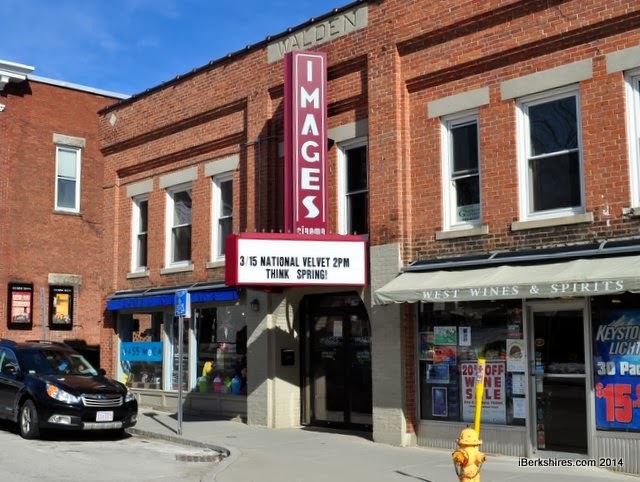
Images Cinema Kicks Off 100th Anniversary Celebration
WILLIAMSTOWN, Mass. — Images Cinema celebrates 100 years as a continuously operating theater this year. To mark this momentous occasion, Images will host a number of special events and screenings throughout the year, culminating with a special cinematic celebration at the theater on Nov. 30, 2016 — 100 years to the day that the first film screened in Williamstown.
In November 1916, Hiram C. Walden converted a former Williams College fraternity house into a movie theater, promising to screen only “high class” fare with live musical accompaniment. One hundred years later, movies are still screening at 50 Spring St., making it one of the oldest continuously operating movie theaters in the world.
Since its opening in 1916, the theater has had many owners and a few name changes. Originally known as the Walden Theater, it was also known as the College Cinema and the Nickelodeon before settling on Images Cinema is 1977. In 1989, actor Christopher Reeves led a campaign to support the theater, and in 1998, the theater was launched as a nonprofit 501 (c)(3) organization dedicated to film as an art form and a source of entertainment. Over the past couple decades, the theater has restored the entrance to its original Spring Street location, added a marquee to the front of the building and, in 2012, converted to digital projection.
“Images Cinema has a long history and deep roots in the Berkshires,” said Doug Jones, executive director of Images Cinema. “It’s thanks to the dedication of Images’ community of supporters and film lovers that we can reflect on the past 100 years while also anticipating the next 100.”
To commemorate its century of history, Images is launching 100 Years of Images, a year-long film series that feature an array of films, guests and other special events. The series will be a countdown through the decades, revisiting favorite films from the golden age of Hollywood, the New Hollywood of the 1970s, the independent movement of the 1980s and '90s to today.
The series will begin at the end of February with Kevin B. Lee and the Video Essay, a forward-looking program that examines the online landscape as an outlet for cinematic creativity and criticism. In March, Images will pay tribute to the ’00s by screening Images’ audience’s most popular film of that decade, Little Miss Sunshine, followed by a Q&A with the film’s directors, Jonathan Dayton and Valerie Faris. Acclaimed director-producer team John Sayles and Maggie Renzi (both Williams alumni) will visit Images in April for an evening of film and conversation.
The series will continue throughout 2016 with films and special events that include Do the Right Thing, The New Hollywood with Rolling Stone's David Fear, Jaws Dive-In Theater, Singin' in the Rain, Double Indemnity with the New York Times' Wesley Morris and more.
Check for up-to-date happenings at www.imagescinema.org
Tags: movie theater, Williamstown,















